15 Best King of Fighters Games Ever Made – FandomSpot
Among the many fighting games owned and developed by SNK, The King of Fighters has played a dominant role in the company’s history.
It’s one of the most well-known and long-lived franchises in existence, and its influence stretches far and wide over the gaming industry.
It’s not discussed so much nowadays due to the relative lack of new content and the aggressive competition from others such as Street Fighter and Tekken.
But in the ten years following the original release in 1994, it was one of the most popular titles in arcades and fighting game tournaments.
With its iconic team-based balancing system and stable gameplay throughout the years, the series has amassed a dedicated and passionate fanbase that continues to play and discuss it online to this day.
Join me as I take a look at over 25 years of King of Fighters, looking at what’s worked, what hasn’t, and what we hope will shape the future of one of the most iconic franchises in gaming.
15.
The King of Fighters All-Star (2018)
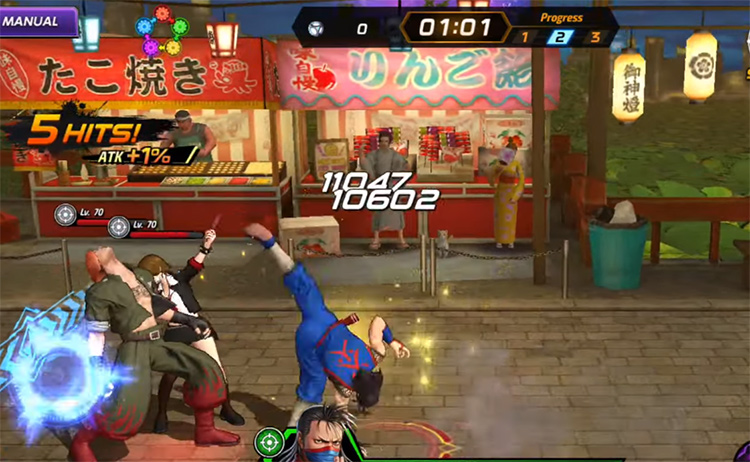
KoF All-Star is a mobile title available on Android and iOS that lets players create their own fighters, form teams with iconic characters, and take on hordes of baddies in a side-scrolling beat ‘em up format.
While the gameplay isn’t necessarily bad, especially considering KoF was originally conceived as a beat ‘em up, the game feels lacking in soul.
Simply put, it’s a cash-grab, like so many other “gacha games” with big names plastered on them.
14.
The King of Fighters: Sky Stage (2010)
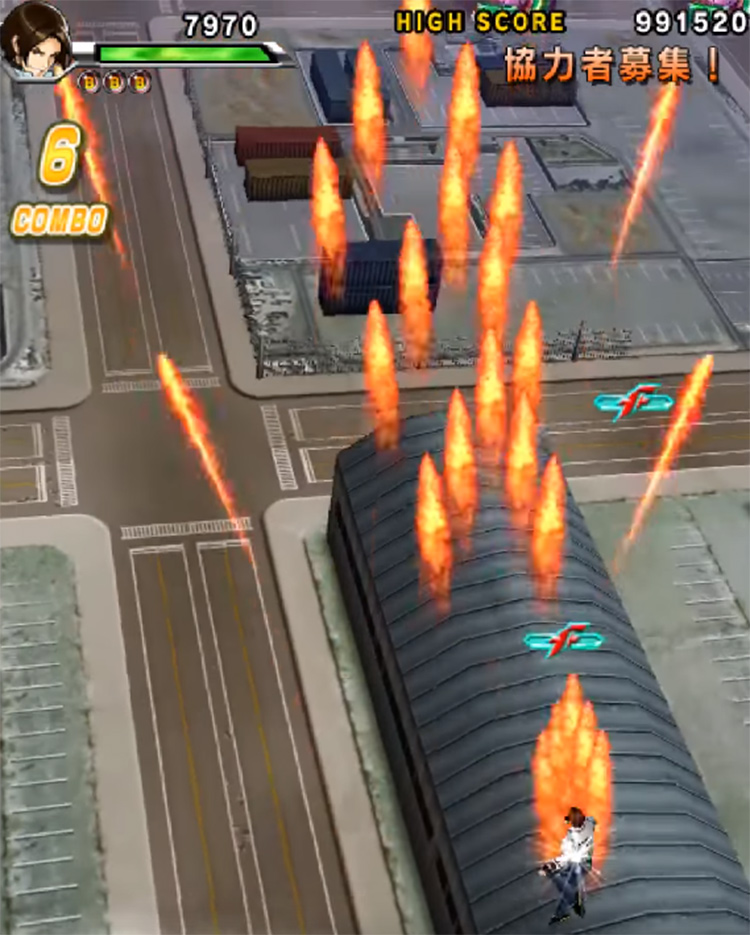
One of the most unique KoF games in the history of the franchise is Sky Stage, a top-down bullet hell shooter game much like the influential Japanese Touhou or the classic arcade Raiden.
The player controls one of several iconic characters from the franchise, such as Kyo Kusanagi and Mai Shiranui, as they shoot energy bullets at enemies while avoiding a pandemonium of enemy beams and other attacks.
The game is ridiculous and makes absolutely no sense in the KoF roster.
But it can be fun and must have served as an entryway for many into the bullet hell genre.
13.
The King of Fighters 2001
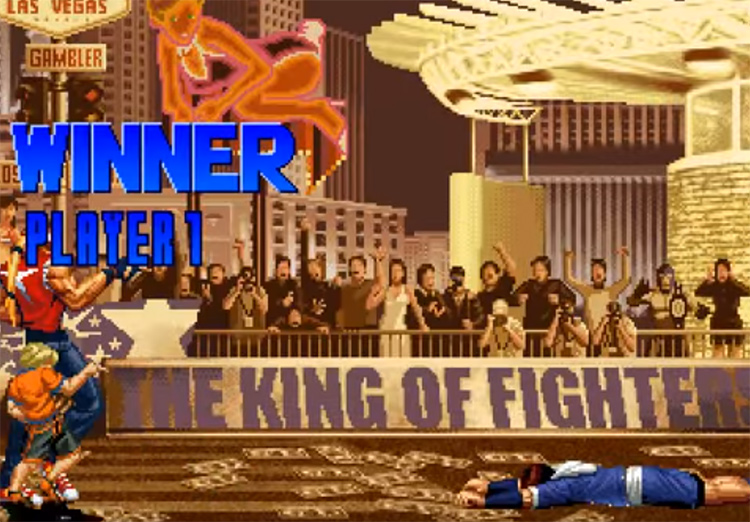
Back when the KoF franchise was updated yearly, 2001’s was one of the least remarkable releases in terms of the evolution of the series.
It was developed by Eolith for arcades and released years later for the PS2 and other systems as well.
While gameplay remained largely unchanged from the previous installment, the team system was altered so that players could choose which of the four characters in each squad acted as a fighter and which remained only as a striker.
It may not have been a revolutionary game, but the visuals were considerably improved. And since it was the first release after SNK had filed for bankruptcy a year before, we should probably be thankful the series kept on going at all.
12.
The King of Fighters ‘97
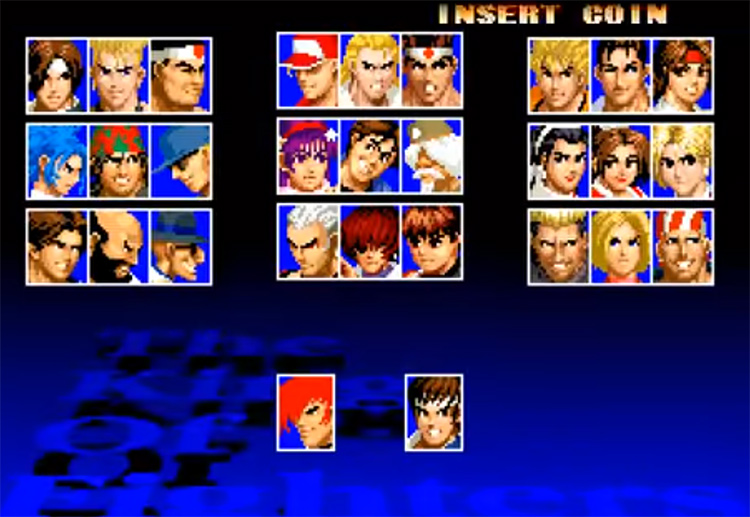
Available worldwide for the Neo Geo CD and in arcades, KoF ‘97 must be one of the most played games in the franchise, contributing considerably to its growth.
Not only were the visuals updated and the special move system fleshed out, but it introduced the New Faces team, which replaced the somewhat boring USA Sports team from KoF 94’.
The game also added some well-loved characters such as Orochi Iori and Orochi Leona, wicked and wild versions of their normal counterparts.
11.
The King of Fighters ‘96
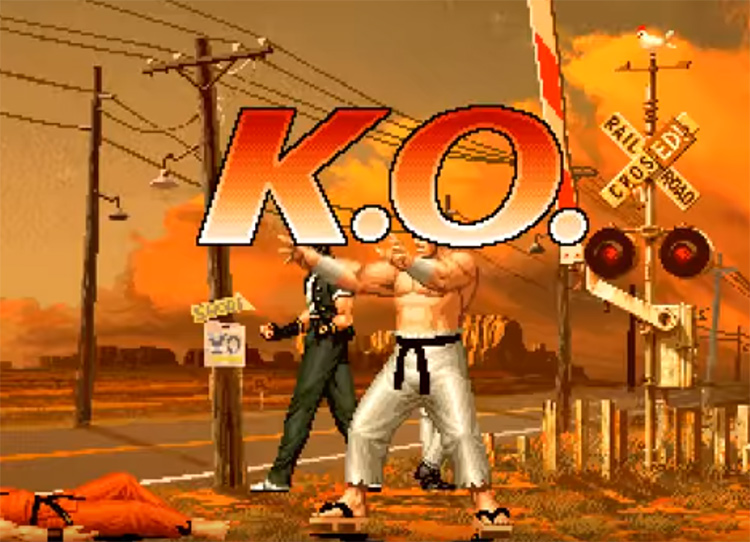
While ‘97 was a solid game, it was also somewhat experimental and lacked direction, probably because of SNK’s bankruptcy and the takeover by Eolith.
It’s widely appreciated by many hardcore fighting game fans for being the KoF with the fastest combos and overall playstyle, much like SSB Melee in its own series.
The roster was considerably expanded from the previous release, taking it up to 30 characters with the addition of Kasumi Todoh, Leona Heidern and many other iconic characters that have remained relevant to this day.
10.
The King of Fighters 2003
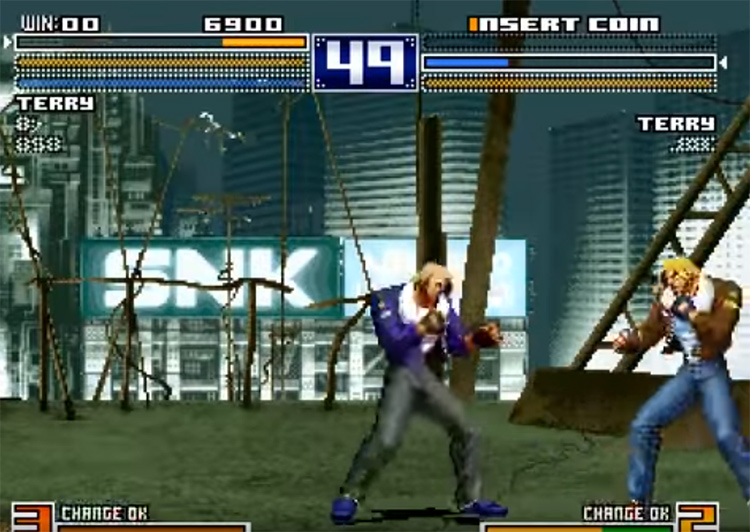
Developed by SNK Playmore, KoF 2003 shines for its introduction of a Tag-team battle system much like the one used in Marvel vs. Capcom games.
Many fans complained that this made the series a tad more generic, but it was generally well-received.
Other changes that made this game special were the addition of a Leader Super Special Move for the party’s leader, and the overall quality of the sprites used for each of the 37 playable fighters.
9.
The King of Fighters XI (2006)
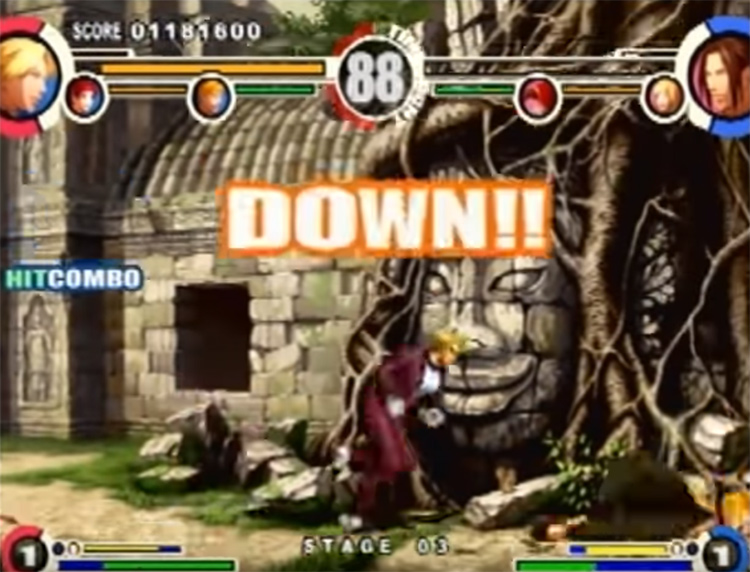
The first KoF game to come out with the new numbering system was KoF XI, initially available in arcades only but released for the PS2 a year later.
This came with an updated soundtrack, more stages, and additional characters such as the fan-favorite babe Mai Shiranui.
The game can be described as an improved version of KoF 2003 with a better combo system and the possibility to switch characters in the middle of a combo to continue the onslaught.
8.
The King of Fighters XII (2009)
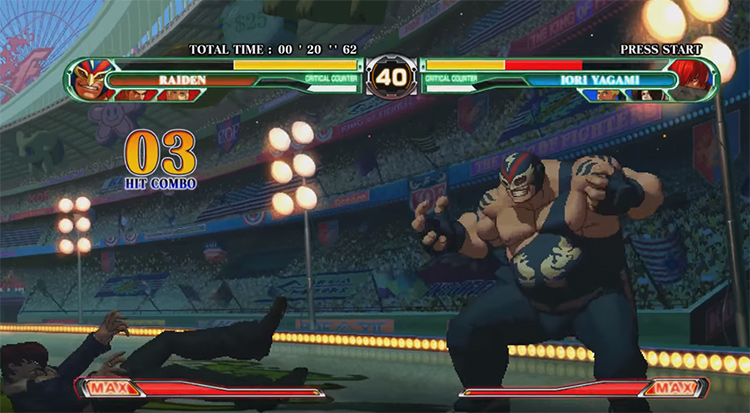
The real change to the franchise came a couple of years later with the release of KoF XII on the PS3, which completely forgoes the classic sprite style that had remained largely unchanged since 1996.
This was changed for new, visually striking graphics that exist in the middle ground between 2D and 3D.
This effect is achieved by using highly-detailed sprites that mimic 3D through the smart use of light and shadows.
The result is, simply put, a work of art. Definitely worth a playthrough if you have the time to appreciate the massive changes.
7.
The King of Fighters ‘99
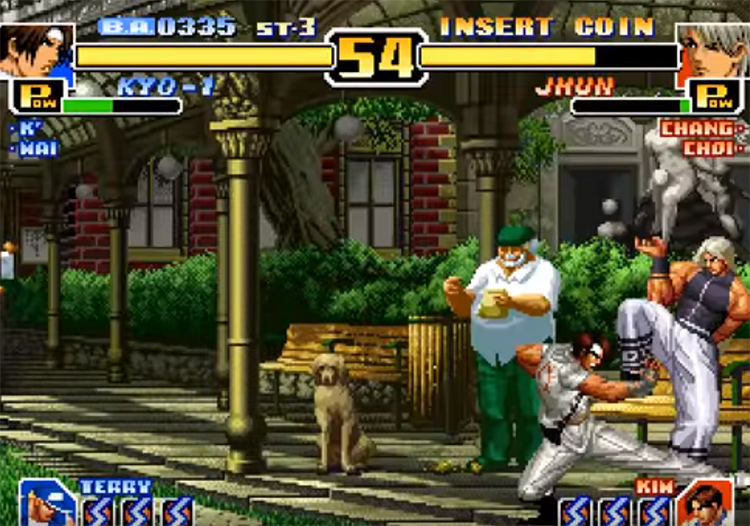
But new doesn’t always equal better, and KoF XII is far from being the peak of the series’ quality.
A good example of this is KoF ‘99, which changed the series forever through the addition of Striker Matches, which permit a fourth member of a team to participate in 3-on-3 fights by coming in and performing one of their special attacks at certain points during the fight.
6.
The King of Fighters 2000
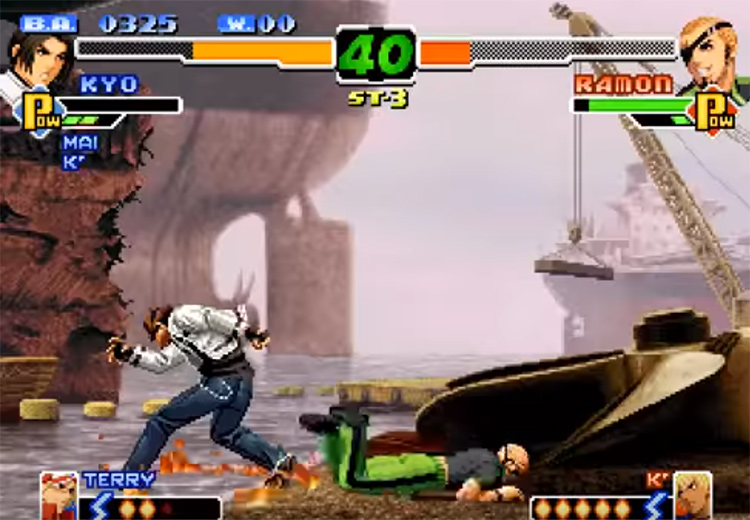
While not as innovative, KoF 2000 rides on the wings of its predecessor by developing and polishing the strikers system and introducing cameos from other famous series such as Metal Slug.
These extra characters, along with many from older KoF games, bolstered the ranks of the strikers up to 50, which made up the game’s roster along with 36 playable characters.
Due to SNK entering bankruptcy and many developers leaving the company in the middle of the game’s development cycle, it released with plenty of bugs and other inconsistencies.
This hampered its potential to become one of the best games in the franchise’s history but still ranks it pretty high on my list.
5.
The King of Fighters XIV (2016)
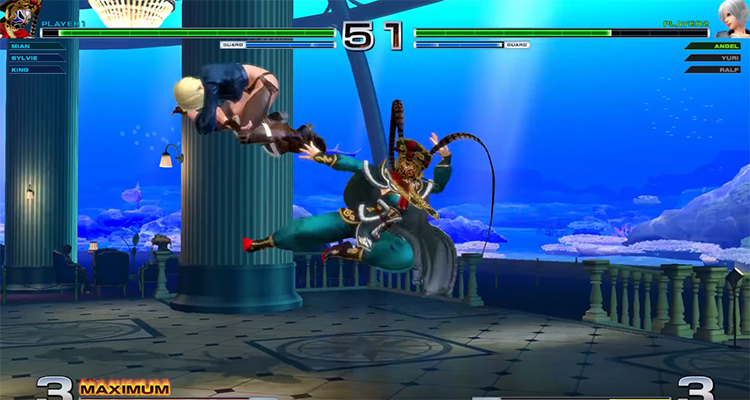
The latest entry in the KoF franchise seems to show a new direction for the series, doing away with many of its past traditions.
This includes the use of 2D sprites, which are replaced by 3D character models and backgrounds.
It features the most newcomers in any KoF game, and its character roster is simply massive, featuring 50 characters divided up into classic 3-man teams.
It may not be the most memorable entry in the series, but with a flexible playstyle and well-balanced characters, the game promises a bright future for the franchise.
4.
The King of Fighters ‘95
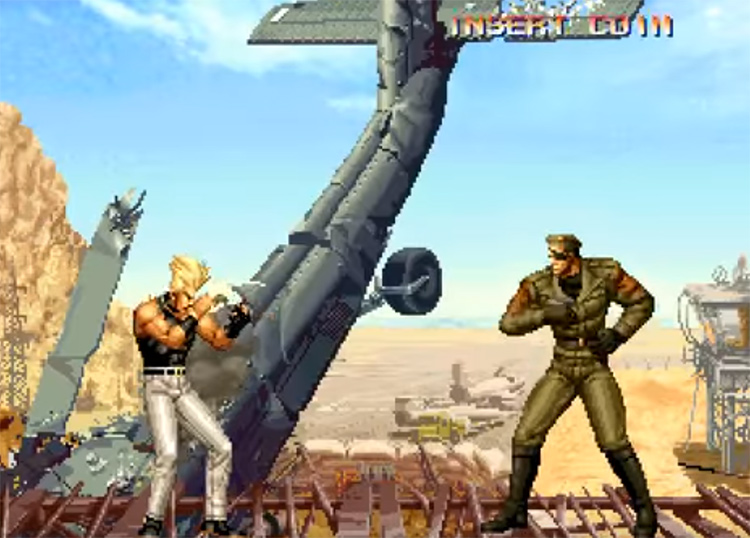
While not the first KoF game ever released, KoF ‘95 was the one that truly put the game on the map for most audiences.
As if ‘94 was just a prototype for what was to come, ‘95 takes everything that felt somewhat off in the original and polishes it greatly.
It adds the possibility to edit teams, and the 26 character roster was varied enough to attract many different kinds of people.
It was also the first entry in the series to include Iori Yagami, who would go on to become one of KoF’s most popular characters and one of the most recognizable faces in gaming as a whole.
3.
The King of Fighters XIII (2010)
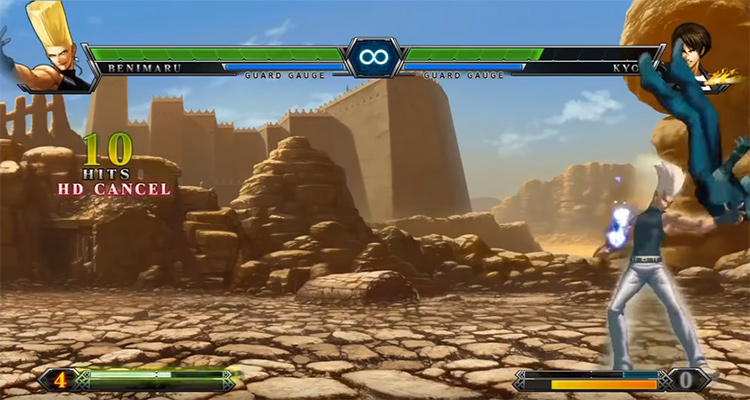
And just like KoF ’95 is the perfected version of ‘94, KoF XIII is the polished product born out of its predecessor.
It retains the same beautiful graphic style that made XII so different and improves upon it with even more detail and fluidity.
Not only that, but it adds several characters that had been left out of the previous entry(such as the luscious Mai Shiranui).
Despite its gameplay being decidedly top-notch and greatly balanced for both casual and competitive play, the game really shines for its style and visuals… which are some of the best ever seen on a fighting game.
2.
The King of Fighters (2002)
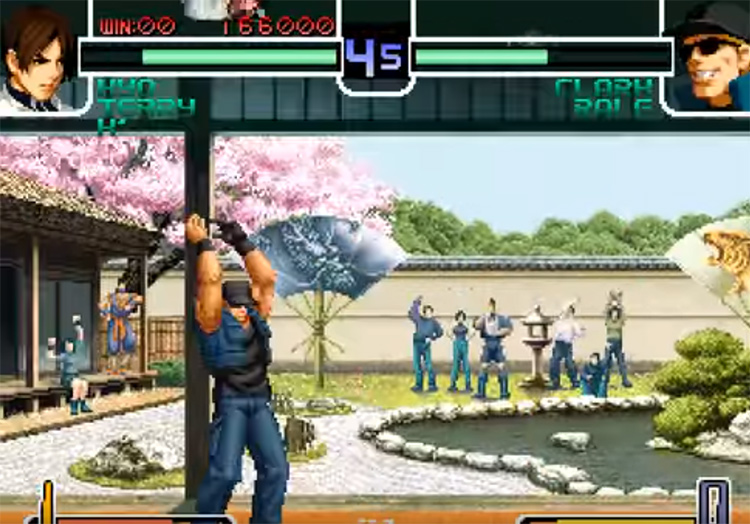
Proving that a game doesn’t need to be balanced for it to be enjoyable we have KoF 2002, arguably the least balanced game in the whole series while also being one of the most cited as the “best KoF ever” by fans.
The truth is, most of us aren’t hardcore combo-masters with muscles in our thumbs.
It came out during the peak of the franchise’s popularity. Which means essentially everyone into fighting games was playing this at the time.
Of course, it’s not all popularity and sheer nostalgia value.
This game had plenty of things going for it, including an engaging and easy to pick up combo system and, more importantly, a vast array of 48 characters to pick from.
1.
The King of Fighters ‘98
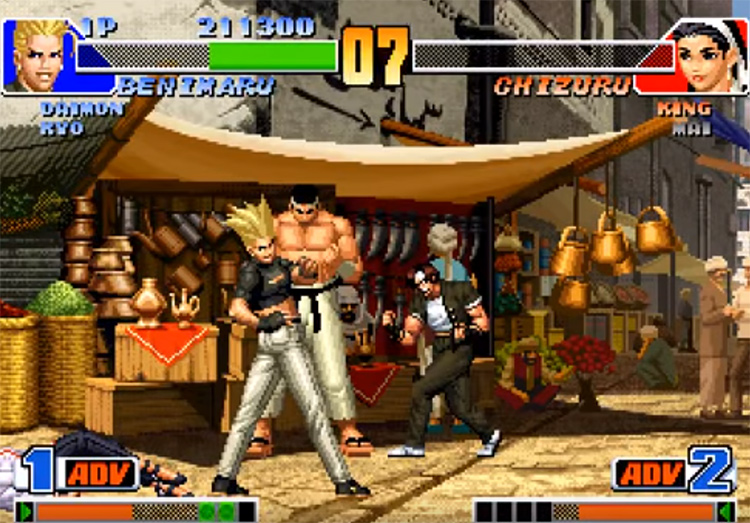
It’s often very complicated for developers to find out what works and what doesn’t each time they release a new game. This often leads to mistakes and disappointed fans over time.
However when they do get it right, a thing of beauty may be born.
That’s the case with The King of Fighters ‘98, my pick for the best KoF game.
This title may be described as an amalgamation of everything that worked in its predecessors, including a character roster that featured the biggest stars of previous installments.
Instead of a hypercomplex combat system with myriad special moves and technicalities, ‘98 opts for a minimalist approach focused on polishing the basics to perfection.
It became the golden standard against which to measure its successors. And it proves once again that sometimes, simple is better.











